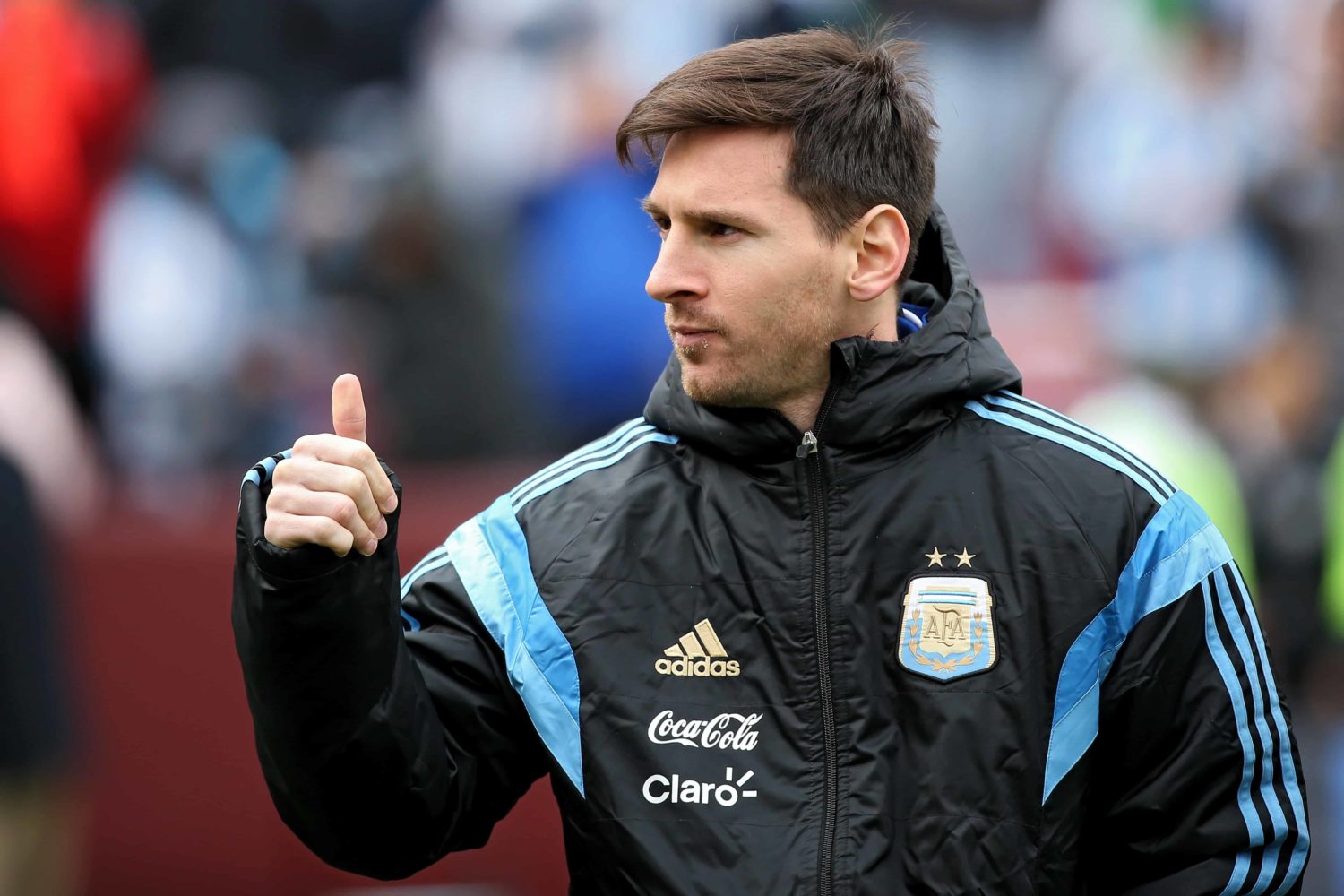LANDOVER, Maryland — A crowd of 53,978 huddled at FedEx Field on Saturday, waiting impatiently for soccer’s greatest attraction to enter the match.
“Mess-i, Mess-i, Mess-i!”
Several times during Argentina’s 2-0 victory over El Salvador, the chant washed over the stadium. But as time ticked away and it became clear that diminutive superstar Lionel Messi was not going to remove his warmups, fans headed for the exits.
It was a cold day all around — and not only because of the weather. Messi, the reason most spectators bought tickets, did not play because of a foot injury.
Confusion about seating left some fans watching from the aisles or seeking alternative locations. And organizers played the wrong music for the Salvadoran national anthem, confusing and irritating the players.
Predictably, the 2014 World Cup finalists prevailed, on Ever Banega’s deflected shot in the 54th minute and Federico Mancuello’s wondrous free kick from an impossible angle in the 88th.
Those who braved the cold, however, did not get to see Messi, who suffered a minor injury in Barcelona’s match against Real Madrid last weekend. On Tuesday, the Argentine federation had given him a clean bill of health, and Messi practiced at Georgetown in subsequent days.
“However, as the days went by and practice continued, he started to complain a little about the pain,” Coach Gerardo Martino said. “We don’t want to risk anything. We know he has an image that is famous worldwide — he’s probably one of the big reasons everyone is here — but we have to take care of him.”
Argentina still had much to offer, but the performance wasn’t quite the same without the four-time world player of the year. Sergio Aguero and Javier Mascherano also began the day in reserve as Martino experimented with several players.
The scene was festive, of course. Vehicles draped in Salvadoran flags began filling the stadium’s lots four hours before kickoff. Messi and Argentina received top billing, but El Salvador was the home team, drawing from one of the largest expatriate communities in North America.
The stadium was awash in differing shades of blue representing the two nations, a ribbon of color interrupted by the multi-hues of Barcelona’s shield and other European and Latin American clubs.
The Salvadoran troupe included four U.S.-born players, including Derby Carrillo, a former St. John’s University goalkeeper who made several superb saves.
Facing enormous physical and technical disadvantages, El Salvador took a defensive approach. Composed work led to speculative counterattacks — none of a serious nature but enough to force temporary Argentine retreats.
How long would it take Argentina to break down the stubborn Salvadoran resistance?
“We bulked up in defense because this is a team that is going to hit hard,” El Salvador Coach Albert Roca said. “We are a growing team. All we can do is learn from the teams above us.”
Last summer, El Salvador’s disruptive and organized ways stumped another elite opponent, Spain. The 2-0 defeat was a triumph of morale.
The Salvadorans were at it again, clogging the penalty area, blocking shots and preventing Argentina from working combinations in tight spaces.
In the 40th minute, Carrillo stopped Angel Di Maria’s hooking free kick from 20 yards. Argentina turned up the pressure at the start of the second half, as Carlos Tevez, who leads Italy’s Serie A with 16 goals for Juventus, stung a 19-yard effort off the base of the left post.
Last year, it took Spain 60 minutes to unlock El Salvador; Argentina needed 54.
Banega targeted the lower left side with a 30-yard bid. Carrillo reacted properly to cover the corner. But defender Nestor Renderos, stationed in the penalty area, stuck out his right foot, causing a deflection that lifted the ball over the diving goalkeeper.
Carrillo was back in form four minutes later with a one-handed save on Tevez’s rising rocket to the near side. Later, he made a wonderful diving stop on Mateo Musacchio’s header.
The outcome was not in doubt; fans were waiting to see Messi. Potential substitutes loosened on the sideline, but not him.
“Mess-i, Mess-i, Mess-i!”
In the final minutes, Mancuello added the second goal on a free kick from a few strides off the end line — a left-footed shot that cleared the leaping Carrillo and a defender before settling into the far side-netting.
The remaining crowd roared in amazement.
Two distinct sounds followed: referee Mario Escobar’s final whistle and some derisive whistles from fans who had hoped to see Messi perform.
(c) 2015, The Washington Post








